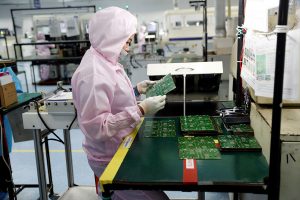NON-GOVERNMENT organizations said the government must refocus its efforts on developing domestic industry and raising agricultural output instead of pursuing foreign direct investment (FDI) and relying on food imports.
Discussing his preferred government initiatives ahead of the President’s address to Congress next week, Rene E. Ofreneo, Freedom from Debt Coalition president and professor emeritus at the University of the Philippines School of Labor and Industrial Relations, said: “We are in the era of import liberalization which made us forget to fix our agriculture, manufacturing, and give our farmers the capacity to boost production.”
He was speaking at a news conference in Quezon City.
President Ferdinand R. Marcos, Jr. is set to deliver his third State of the Nation Address before Congress on July 22.
Senator Cynthia A. Villar has called on the Department of Agriculture (DA) to more efficiently use the P30 billion in national rice development funds, and called for a halt to the procurement of hybrid seed, which she said is expensive and has failed to boost rice output.
She filed Senate Bill No. 2601, which seeks to extend the Rice Competitiveness Enhancement Fund to support farm mechanization and the supply of seed and fertilizer.
The RCEF, a component of the Rice Tariffication Law passed in 2019, is set to expire by the end of this year. The law deregulated rice imports, allowing private parties to import rice, originally charging them a 35% tariff on grain brought in from Southeast Asia. The tariff has been lowered to 15% regardless of source country.
The Federation of Free Farmers and Samahang Industriya ng Agrikultura have opposed the lowering of rice tariffs to 15%, saying that such a move threatens farmers’ livelihoods.
Leodegario Q. de Guzman, chairman of the Bukluran ng Manggagawang Pilipino, said at the same event that the government needs to boost the competitiveness of domestic products. — John Victor D. Ordoñez
